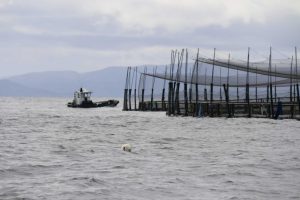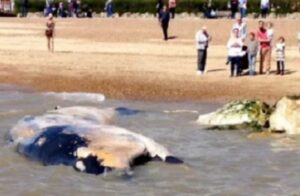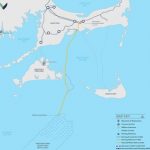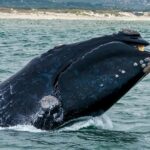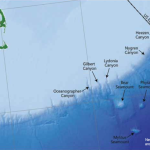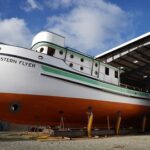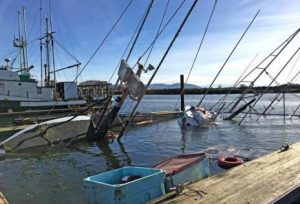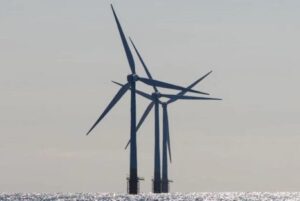Plenty of people in Ocean City, a popular beach community south of Atlantic City, are dead-set against a project proposed by Orsted and PSEG that still needs state approval to bring a power line onshore. “We don’t want this here in any way, shape or form,” said resident Suzanne Hornick, a leader of local opposition to the plan. The U.S. has 27 wind farm projects in development, with an additional five locations up for auction in California next month, according to the Business Network for Offshore Wind, a nonprofit dedicated to helping develop the offshore wind industry. If even a small portion of them were to face protracted legal or regulatory challenges, it could pose a serious obstacle to the industry. >click to read< 11:02
Tag Archives: offshore wind farms

Governor Murphy has a whale of a problem with his offshore energy plan
“Circumambulate the city of a dreamy Sabbath afternoon … Things have changed a lot since 1851, when Herman Melville wrote those words. But the Atlantic Ocean hasn’t. People still wander to its shores to gaze at an ocean devoid of man-made objects. But not for long, not if Phil Murphy gets his way. In his State of the State address, Gov. Phil Murphy boasted of his plan to have hundreds of wind turbines built offshore, some more than 900 feet tall. The governor also mentioned his commitment to “environmental justice.” We are used to looking at the ocean as public, but the Murphy administration wants to award large chunks of it to multinational corporations such as Royal Dutch Shell. We’re seeing that with groups like the Sierra Club and the Audubon Society. >click to read< 11:39
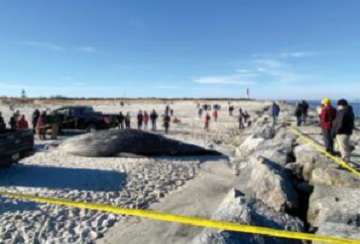
Advocacy Groups Demand Transparent Investigation into Deaths of Six Endangered Whales
Calling the deaths of six endangered whales that have washed up in 33 days on the beaches of New Jersey and New York “alarming and environmentally harmful,” local, state and regional ocean advocacy groups are calling for President Joe Biden to immediately address the unprecedented trend. “The noise from the offshore wind vessel is a potential cause of the recent whale stranding and increased near-shore sightings,” said Bob Stern, president of Save LBI, a nonprofit, non-partisan coalition opposed to the placement of offshore wind farms off Long Beach Island. “The beached whales bear no sign of vessel strike or fishing gear entanglement, leaving natural causes or noise as the potential causes and raising the likelihood that our concerns were well-founded.” >click to read< 16:03

South Jersey Times Editorial Board – N.J. whale death mystery may not lead to mighty wind
Depending on who’s counting, at least six whales have been discovered ashore since late fall. Let’s not to jump to conclusions, though, about why these whales died, at least not to the degree that we need to shut down everything that’s going on offshore. Pressure groups are already calling for moratoriums on any work related to offshore wind energy development, even though none of structures related to the turbines system exist off the Jersey coast. (The survey work is happening, though.) The developers of offshore wind, and cheerleaders who include our governor, are finding more pushback against these planned installations than they anticipated. It’s not just Clean Ocean Action that has a beef; commercial fishing groups and others concerned about shoreline aesthetics are weighing in, too. >click to read< 10:48

6 beached whales in 33 days — NJ groups say offshore wind may be to blame
Advocacy groups believe they know why the New Jersey region has seen half a dozen beached whales over the span of 33 days: offshore wind energy infrastructure. On Monday, two days after a 30-foot humpback washed ashore in Atlantic City, ocean advocacy organizations sent a letter to President Joe Biden, demanding an immediate investigation into the recent whale deaths and calling for a pause on all ongoing wind-energy activity offshore. “Never have we ever heard of six whales washing up within 33 days,” said Cindy Zipf, executive director of Long Branch-based Clean Ocean Action. “We don’t know how many whales may have died offshore.” >click to read< 10:14

Offshore wind farms threaten New Jersey’s shellfish industry. Should fishing communities be compensated?
Earlier this month, New Jersey announced it would join eight other states that are seeking a regional approach to compensate fishing communities for the impending losses. “Are we going to be allowed to fish inside of them (the wind turbine fields)?” asked Kirk O. Larson, a scallop fleet owner and mayor of Barnegat Light, New Jersey. “Why did (the federal Bureau of Ocean Energy Management) put a wind farm right inside of a scallop area, the most productive scallop area pretty much on the East Coast, not counting Georges Bank.” Shellfish harvesters like Larson are expected face serious financial damage from offshore wind development projects. “I’m not looking for compensation,” said the scallop fleet owner. “I’m looking for work, so I’m not really looking for welfare.” >click to read< 07:43
Markey, Moulton push for national fund to compensate fishermen for losses due to offshore wind >click to read<
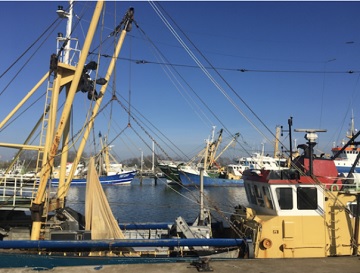
Brexit, offshore wind farms and high fuel costs scupper Dutch fishing industry
The end of the Dutch trawler fishing industry is in sight now a large part of the Dutch fleet has signed up for the government’s buy-out ruling, according to NOS. In total, about 40 of the 120 trawlers which fish for plaice and sole in the North Sea will be left and that will have a knock-on impact on the rest of the industry, the broadcaster said. For example, the fish auction in Den Helder is now closing its doors and trawlers will now have to head for Den Oever and IJmuiden to unload their catches, NOS said. >click to read< 13:37

That whooshing sound is windmills shredding tax dollars
Nothing more horrifying than a chirpy Energy Secretary tweet first thing in the morning. Especially when it contains the trifecta of bad news for taxpayers from one of the denser members of the Biden administration’s stable of lackluster cabinet mannequins: 1) Green energy, 2) Unions, 3) Federal incentives aka tax dollars. They finally held much-anticipated wind lease auctions on parts of the pristine California coast and the sharks are already circling in anticipation. It’s going to be a while yet, though. Morro Bay is really quite a beautiful place. I’m wondering what that “substantial new waterfront infrastructure” all entails. Maybe the greenies won’t be so thrilled with it when the bulldozers come in? >click to read< 10:33
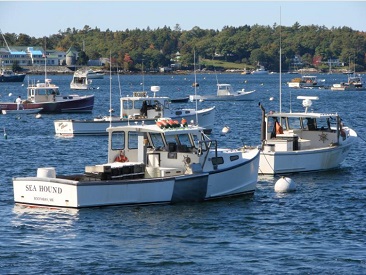
Maine lobstermen: The other endangered species?
When President Biden signs the $1.7 trillion omnibus bill into law, Maine’s lobster industry will take a six-year step back from the brink thanks to the efforts of Maine’s congressional delegation which secured a last-minute addition that put further restrictions to protect endangered right whales on hold. “The pause doesn’t mean this is over,” said Boothbay’s Troy Plummer, member of Maine Lobstermen’s Association (MLA) board of directors and lobster boat operator for nine years. “Everything is status quo until 2028, but we’ll have to do our homework,” said Boothbay Harbor’s Clive Farrin, lobsterman for more than 20 years and past president of Downeast Lobstermen’s Association. >click to read< 10:10
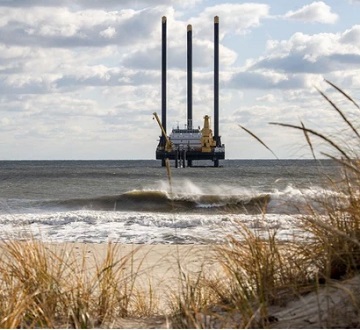
Follow the Science? US Ignored Own Scientists’ Warning in Backing Atlantic Wind Farm
US government scientists warned federal regulators the South Fork offshore wind farm near the Rhode Island coast threatened the Southern New England Cod, a species so venerated in the region a wooden carving of it hangs in the Massachusetts state house. The warnings were delivered in unpublished correspondence weeks before Interior’s Bureau of Ocean Energy Management authorized the 12-turbine South Fork plan in November 2021. And they serve to underscore the potential ecological consequences and environmental tradeoff of a coming offshore wind boom along the US East Coast. President Joe Biden wants the US to deploy 30 gigawatts of offshore wind by the end of the decade. >click to read< 10:15
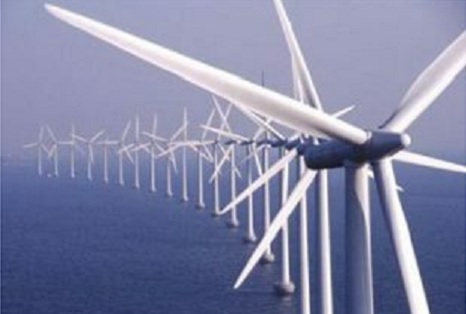
Offshore Wind Farms Could Cause ‘Cataclysmic Destruction’ Of Ecosystems
Wind energy, cheap electricity from the elements. Surely a great idea? But has it just become a cash cow for big industry and governments, with precious little benefit to citizens – and, ironically, all at the expense of the natural world? I’ve written many times over the years about the potential for ecological damage caused by badly planned wind farms, particularly large offshore developments, the detrimental effects of which have been vastly underestimated. Now, as the industry expands at an alarming pace, we disregard the evidence at our peril. >click to read< By Jason Endfield 13:29

Green Groups Ignore Genuine Risks To Whales From Offshore Wind Farms
Environmentalists want to crack down on the Maine lobster industry in the name of protecting endangered whales, but they turn a blind eye to the greater threat to whales from proposed offshore wind farms. The irony is almost as delicious as the lobster dinners at stake. Green groups such as the Center for Biological Diversity and Defenders of Wildlife routinely target commercial fishing by claiming that it causes ancillary harm to marine species protected under the Endangered Species Act and other federal laws. This includes the North Atlantic right whale, whose population of only 350 or so migrates up and down the Atlantic Coast and can cross prime lobster territory off New England. >click to read< 11:52
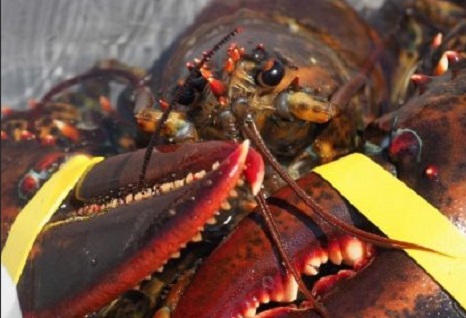
Biden’s Latest Green Energy Victim: The Lobster Industry
One of President Joe Biden’s most disgusting “Nero fiddles while Rome burns” moments came when he hosted his first state dinner for visiting French President Emmanuel Macron. While the president and his guests gorged themselves on 200 live Maine lobsters poached in butter, his administration did everything it could to regulate the Maine fishing industry, particularly lobstermen. out of existence. And they’re making the fishing industry a scapegoat for the actual peril lurking in the waters off New England — offshore wind farms. >click to read < 15:04

Wind industry group says turbine restrictions for whales could threaten commercial viability of projects
An organization that represents and lobbies for the wind industry has warned that a recommendation from federal scientists to limit turbines in offshore lease areas to protect the endangered North Atlantic right whale could threaten the commercial viability, efficiency and utilities contracts for some projects. In a letter first published by The Light last month, NOAA scientist Sean Hayes proposed establishing a “conservation buffer” zone or turbine-free area overlapping with wind development planned in Southern New England. But the American Clean Power Association (ACP), which represents the wind industry, said such a buffer would cause the removal of a “significant number” of turbines from several projects. >click to read< 07:29
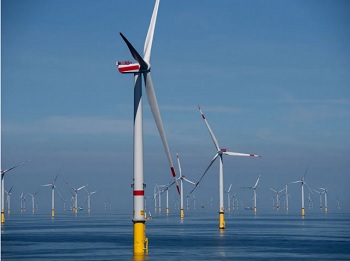
Ocean County, NJ Mayors express strong concern and opposition to Offshore Wind Farms
Point Pleasant Beach Mayor Paul Kanitra believes many people may not want to come to the beaches if these wind turbines are just offshore. “Tourism is the major economic driver in Ocean County,” Toms River Mayor Maurice “Mo” Hill said. “We do have a substantial commercial fishing industry (in Ocean County) off of Point Pleasant, Barnegat, you’ve got commercial fisheries, what impact that’ll have if they’re out using nets and they’ve got to be mindful that these are jetting up out of the water, it could impact the fishing,” >click to read< 10:53
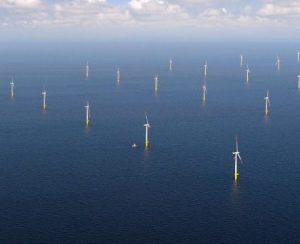
Opinion: Who owns the oceans?
There is a question that has been asked in our household for years. For us, it’s a personal question. Generations of family fisherman have been affected by the decisions of others, some known and many invisible. We have had to sit on the sidelines watching the demise of our industry while power brokers, politicians, and the money hungry chart the course when we are not even invited to the table. Now we find ourselves watching the final chapters play out, knowing that we don’t even have a role. The high jacking of our oceans didn’t happen overnight. The slow, methodical process has lined the pockets of the politicians at every level of government. Working in conjunction with private industry and environmentalists they have driven our beloved industry past the brink and left fisherman with no place left to fish. >click to read< 09:59

Offshore Wind Farms in New England Create Headaches for Both Man and Beast
“I don’t think ever in history has there been such a massive alteration of the ecosystem in such a short amount of time,” says the executive director of New Jersey-based Clean Ocean Action, Cindy Zipf. “We’re looking at 3,500 turbines as tall as the Chrysler Building, 2.2 million acres of ocean, and 10,000 miles of cable just in the Northeast in just the next seven years.” At the center of the conflict is the North Atlantic right whale and other endangered marine mammals that the Commerce Department’s National Oceanic and Atmospheric Association National Marine Fisheries Service are charged with protecting. Fewer than 350 right whales are left in the Atlantic Ocean, according to the fisheries service. >click to read< 08:14
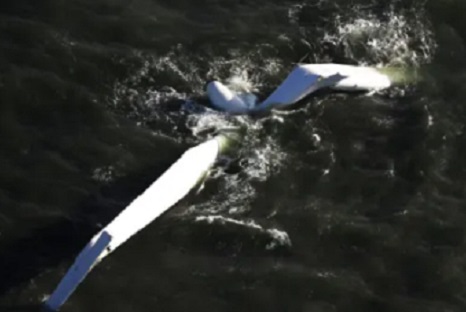
Plain Stupid: The Only Thing Dumber Than Wind Power Is Offshore Wind Power
Wind power comes with a staggering price tag, taking these things out to sea sends those costs into orbit: intermittent offshore wind power is six times the cost of gas-fired power that’s always available on demand. Placing giant industrial wind turbines miles offshore is costly enough, but the rising costs of attempting to maintain them (and the transmission cables connecting them) in a highly corrosive marine environment are positively punitive. So much so, that even the grandest of offshore plans have hit the skids, as Robert Bryce details below. >click to read< 14:55

Doomed to Fail: In the Northeast and Mid-Atlantic, a quiet reckoning over offshore wind
Crippling European electricity prices, soaring Northeastern heating bills, looming diesel-fuel shortages, and OPEC+ drama have captured headlines for months. More quietly, offshore-wind energy developers are discovering their projects’ economic infeasibility, undermining states’ offshore-wind goal of generating 40,000 MW by 2040. The Biden Administration must recognize this is a pipe dream, or it will cost Americans billions trying to salvage an industry doomed to fail. October brought the first sign of troubles,,, Massachusetts’ Commonwealth Wind, Mayflower Wind project, New Jersey Ocean Wind. All three project developers originally negotiated prices far above wholesale market prices. All three qualified for a production tax credit and additional offshore-wind state tax credits. All three will qualify for a new 30 percent offshore wind investment tax credit which was not available when they made their initial bids. Yet this federal and state largesse has still failed to keep the projects afloat. >click to read this< 18:17

Virginia Agrees to Compensate Fishing Industry for Damage from Offshore Wind Farms
Nine states, including Virginia, have agreed to establish a major compensation fund to pay their private commercial and recreational fishing companies for damages caused by offshore wind turbines. Three guesses where the money comes from. The announcement, made December 12, hints at it coming from project developers, but in Virginia of course that is a monopoly utility guaranteed by law to collect all costs from its customers. If the worst fears over CVOW’s impact on commercial fishing prove correct, a shrinking supply of seafood from the continental shelf will likely raise the prices on what is still coming to stores and restaurants. People may pay more both ways. >click to read< 07:31
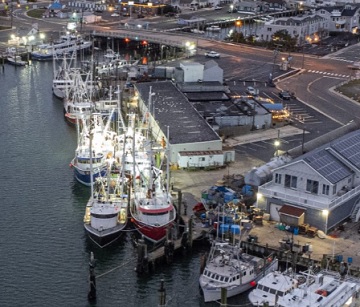
N.J., N.E., to Consider Fund to Compensate Fishermen for Revenue Lost to Offshore Wind Development
New Jersey is one of nine states that will consider a plan to establish a fund that would compensate commercial fishermen for losses that could be sustained due to impending offshore wind development. The states – Maine, New Hampshire, Massachusetts, Rhode Island, Connecticut, New York, New Jersey, Maryland, and Virginia – on Monday released a Request for Information (RFI) aimed at receiving input from impacted members of the fishing industry, offshore wind developers, corporate and financial management entities, as well as interested members of the public, to inform efforts to establish a regional fisheries compensatory mitigation fund administrator. “Mark off the area and then compensate us,” commercial fisherman Jim Lovgren, of Point Pleasant, said at a meeting on the topic five years ago,,, Photos, >click to read< 07:38

BOEM and NOAA announce joint strategy for fisheries surveys
BOEM and NOAA Fisheries are announcing a joint strategy to address potential impacts of offshore wind energy development on NOAA Fisheries’ scientific surveys. The Federal Survey Mitigation Strategy underscores the agencies’ shared commitment to the Biden-Harris Administration’s clean energy goals of responsibly advancing offshore wind energy production while protecting biodiversity and promoting ocean co-use. “This joint strategy will help ensure the quality of NOAA’s fisheries surveys and data are maintained while the nation develops offshore wind energy,” said Janet Coit, assistant administrator for NOAA Fisheries,,, >click to read< 08:57
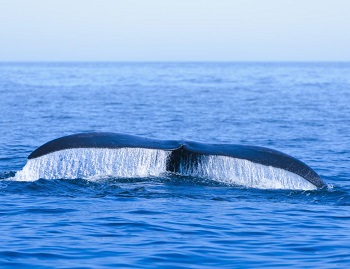
Wind Projects Off New England Put Endangered Right Whales at Risk, Warns NOAA Scientist
Planned wind projects off the New England coast threaten to harm the region’s dwindling population of endangered right whales, according to a US government marine scientist. The warning from a top National Oceanic and Atmospheric Administration official, obtained by Bloomberg under a Freedom of Information Act request, underscores the potential legal and environmental perils of offshore wind development along the coast. President Joe Biden has a goal of deploying 30 gigawatts of offshore wind within the decade. Both initial construction of wind projects and decades of expected operation threaten to imperil right whales in southern New England waters, Sean Hayes, chief of the protected species branch at NOAA’s National Northeast Fisheries Science Center, said in a May 13 letter to Interior Department officials. >click to read< 11:26
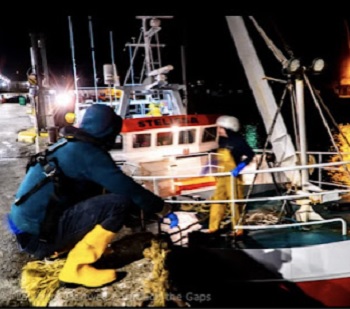
The most abhorrent occupation in the world?
Magnus Johnson, a marine scientist at the University of Hull, published this observation on his blog almost a decade ago, as many readers with good memories may recall, but it remains just as pertinent today. It is reprinted here with a new introduction, in which he reflects on how little has changed in the intervening decade. “Almost 10 years ago, I published this article on my blog. (We posted it on May 18, 2013) It was at a time when it felt like fishing was being vilified through a co-ordinated effort by the NGO industry. In recent times I’ve thought ‘here we go again’ as I read complete untruths about North Sea cod being fished to extinction, the theft of the commons by the industrialization of the sea as wind farms march across it, and clamour for generic exclusion of fishers from traditional grounds in Scottish waters by NGOs. >click to read< 08:06

Are we really going to let them kill our ocean and our fishing way of life?
Generations of fishermen are no longer fishing because of the restrictions and unfair quota from faulty science. Like I said in earlier posts, we went from 400 active boats down to 17 barely active boats. Meanwhile conservation groups will tell you that we are wiping the ocean out from overfishing. That is so wrong on so many levels, it isn’t even funny. Hard to believe New England was considered to be sustainable for haddock and lobsters. Then fishing efforts went down and now we are no longer sustainable. The only thing that’s changed is windmills are on their way to the Gulf of Maine and the management at NOAA and NMFS are allowing it to happen. Why would they not talk to the people who have committed their lives to the job of harvesting our ocean?! Well, I can’t speak for everyone, but I have a few hypotheses. By Jerry Leeman. >click to read< 16:38
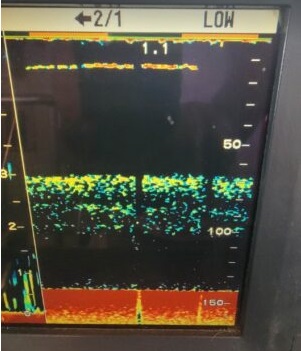
Jerry Leeman – Why it is wrong to assume anything
I’ll use this photo to prove a point. NOAA uses a computer to pick where their assessments on fish stocks will take place. Here lies the problem. It’s in random spots, and they never make the same tow again at the same time of the year because they use a computer model that knows nothing of fishing. NOAA is taking the assumption that fish live everywhere. That’s pretty funny because if you knew anything about fishing at all, fish species don’t hang on every piece of bottom all day and night. They just don’t. Not only do fish have tails, but they also swim up into the water columns and travel with the feed and breeding cycles and changes of the seasons. >click to read the rest< by Jerry Leeman.16:16

A Great Wall – In the Sea
Fishermen are being excluded from the debate relating to windfarm development in the North Sea, according to Job Schot of Eurocutter Job Senior Z-201, who has been prominent in questioning the rapid changes taking place. ‘I’m opposed to windfarms,‘ he said. ‘I’m a fisherman and this has a huge effect on how we make our living. But we have to accept that this isn’t going away.’ Since the first wind turbines appeared in the North Sea a couple of decades back, the rate of change has increased, and today fishing grounds are disappearing at breakneck speed, with little attention paid to those who question this. Photos, >click to read< 18:20
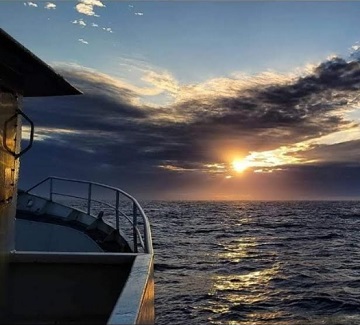
Jerry Leeman: Fishing is my life. Somewhere, people forgot to listen to the generations before us.
I’ve spent all my life on the ocean. My family and friends are fishermen and lobstermen. I grew up on an island in Maine and almost everyone was in some form of fishery, whether it be groundfishing, gill netting, seining and lobstering. We even had shrimping till that was mis managed away. I grew up watching these men and women harvesting the ocean. Rules were put into place to harvest the ocean responsibly and sustainably for future generations. Most people in this nation know little to as of why our fish stocks became depleted. Other nations like Russia and other European super trawlers were allowed to pillage our waters along the New England coast. They were eventually banned, but the destruction had been done. We’ve spent years restricting ourselves fishing, going out of our way bending backwards to rebuild our fish stocks. >click to read< By Jerry Leeman 11:19


































